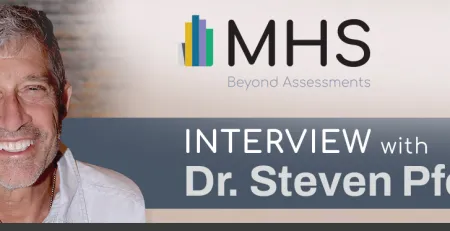The Link Between Sleep Problems and ADHD
For students, the consequences of sleep deprivation and daytime sleepiness are especially problematic. In one study, it was reported that daytime sleepiness, sleep deprivation, and irregular sleep schedules can result in lower grade point averages, increased risk of academic failure, compromised learning, and impaired mood (Hershner & Chervin, 2014). In another study, results indicated a significant positive correlation between amount of sleep per night with GPA, and a significant negative correlation between average number of days per week that students obtained less than five hours of sleep and GPA (To, 2010).
Sleep problems are highly common among youth with Attention-Deficit/Hyperactivity Disorder (ADHD). Previous studies have demonstrated that up to 50% of youth with ADHD grapple with sleep problems, including difficulty falling or staying asleep, sleep disturbances (e.g., nightmare, sleepwalking), or feeling tired or fatigued during the daytime (Cortese et al., 2009; Kirov & Brand, 2014; Wajszilber et al., 2018).
The relationship between ADHD and sleep problems is complex. Emerging evidence indicates that sleep problems may be an innate feature of ADHD that stems from the same cause of the disorder (Hvolby, 2015; Shen et al., 2020; Weiss et al., 2019; Weiss et al., 2015). However, other research shows that individuals with a sleep disorder can display symptoms of inattention and hyperactivity that mimic those associated with ADHD (Hvolby, 2015; Wajszilber et al., 2018;). Therefore, we understand there may be a reciprocal relationship between sleep problems and ADHD in which sleep problems contribute to ADHD symptoms and ADHD contributes to sleep problems (Hvolby, 2015). Moreover, stimulant-based ADHD medications may cause some youth to experience sleep problems, yet, for others, it can alleviate ADHD symptoms, which thereby reduces sleep problems (Hvolby, 2015; Stein et al., 2012).
The complex and sometimes paradoxical interactions that occur between ADHD and sleep problems have made it difficult to understand the precise nature of the link between the two phenomena. That said, there is growing evidence to demonstrate that sleep problem severity and ADHD symptom severity are positively correlated, and youth with both ADHD and sleep disorders display lower levels of functioning and a lower overall quality of life compared to youth with ADHD alone (Wajszilber et al., 2018; Yin et al., 2022;). Therefore, the clinical implications of co-occurring ADHD and sleep disorders are profound and make it imperative to examine sleep problems when evaluating ADHD.
Using PROMIS to detect sleep problems
Despite the prevalence of sleep problems among youth with ADHD, co-occurring sleep problems can often go untreated. Part of the reason why sleep problems may go unaddressed is because of a lack of tools that provide clear, objective, and actionable measures of the extent and severity of a youth’s sleep problems.
While hundreds of pediatric sleep questionnaires exist, many are fraught with issues that limit their clinical utility, including a lack of psychometric evidence to support their reliability and validity, an over-emphasis on sleep hygiene practices as opposed to sleep quality, and an over-reliance on parent report as opposed to the youth’s own subjective experience of their sleep problems and subsequent daytime functioning (Manzar, 2021; Meltzer et al., 2020).
The Patient Reported Outcome Measurement Information System (PROMIS®) was developed to overcome the limitations associated with existing measures by offering rigorously validated banks of items that tap into both a youth’s own account and their parent’s account of difficulties across a range of health domains, including Sleep Disturbance and Sleep-Related Impairment (Meltzer et al., 2020; Yu et al., 2011).
The PROMIS Sleep Disturbance-Short Form 8a consists of eight items designed to assess self- or parental-perceptions about the quality of sleep, depth of sleep, and feelings of restoration due to sleep that an individual experiences. Difficulties falling or staying asleep and feelings about the quality of sleep are also measured. The PROMIS Sleep-Related Impairment-Short Form 8a consists of eight items that tap into self- or parental-perceptions of impairments associated with poor sleep. This includes levels of alertness or feelings of tiredness experienced during the day. For each form, a Self-Report version is available for youth aged 12+ years and a Parent-Proxy version is available for youth aged 5-17 years. Each version is offered in both English and Spanish. Together, these forms provide practitioners and researchers with a quick and easy to administer yet highly reliable and valid measure of a youth’s sleep problems (Meltzer et al., 2020).
Using PROMIS alongside the Conners 4
Due to the prevalence of sleep problems among youth with ADHD, and because of the deleterious interactions that occur between ADHD and sleep problems, it is now widely recognized that it is best practice to screen for sleep problems when evaluating ADHD.
To screen for sleep problems, the Conners 4th Edition (Conners 4®) includes Sleep Problems Indicator items. Should the Conners 4 Sleep Problems Indicator be flagged, it is recommended that the assessor follow-up to explore the extent and severity of the youth’s sleep problems in greater detail. The PROMIS Sleep Disturbance and Sleep-Related Impairment measures can be used to complement the Conners 4 and to facilitate a follow-up investigation of sleep problems, as they provide rich insight into the quality of the sleep that a youth is attaining, along with the impact that their sleep is having on their daytime alertness and functioning.
The PROMIS Sleep Disturbance and Sleep-Related Impairment Short Forms can both be accessed free of charge for all Conners 4 users. To access PROMIS, it must first be enabled within the MHS Online Assessment Center+ (MAC+). Click here for step-by-step instructions, including how to enable PROMIS if you have an administrator account with single or multiple sub-users.










